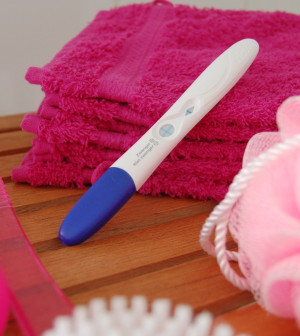- 10 Strategies to Overcome Insomnia
- Could Artificial Sweeteners Be Aging the Brain Faster?
- Techniques for Soothing Your Nervous System
- Does the Water in Your House Smell Funny? Here’s Why
- Can a Daily Dose of Apple Cider Vinegar Actually Aid Weight Loss?
- 6 Health Beverages That Can Actually Spike Your Blood Sugar
- Treatment Options for Social Anxiety Disorder
- Understanding the Connection Between Anxiety and Depression
- How Daily Prunes Can Influence Cholesterol and Inflammation
- When to Take B12 for Better Absorption and Energy
Don’t Assume Siblings Will Have Food Allergies, Too

Only about one in 10 siblings of children with food allergies also has such allergies, a new study finds.
“Too often, it’s assumed that if one child in a family has a food allergy, the other kids need to be tested for food allergies,” said lead author and allergist Dr. Ruchi Gupta, an associate professor of pediatrics at Northwestern University in Evanston, Ill.
The study included 1,120 siblings of children with a diagnosed food allergy. Patient histories and testing revealed that while 53 percent of the siblings had a food sensitivity, only 13 percent had an actual food allergy, the researchers found.
The study was scheduled for presentation Thursday at the annual meeting of the American College of Allergy, Asthma and Immunology, in San Antonio. The findings should be considered preliminary until published in a peer-reviewed medical journal.
The study authors said their findings suggest that food allergy testing in siblings of children with food allergies should be limited to reduce the harmful impact of possible misdiagnosis.
“Testing for food allergies if a reaction hasn’t taken place can provide false-positives, as we saw in our research,” Gupta said in a university news release. “More than half the kids in the study had a sensitivity to a food, but they weren’t truly allergic. Kids who have a food sensitivity shouldn’t be labeled as having a food allergy.”
The risk of food allergy in one sibling, based on the presence of food allergy in another, has never been completely clear, study co-author and allergist Dr. Matthew Greenhawt said in the news release. He is an assistant professor in the department of internal medicine and the department of pediatrics and communicable diseases at the University of Michigan.
“This perceived risk is a common reason to seek ‘screening’ before introducing a high-risk allergen to siblings. But screening a child before introducing a high-risk allergen isn’t recommended,” he said. “Food allergy tests perform poorly in terms of being able to predict future risk in someone who has never eaten the food before.”
This new study showed that testing should be used to help confirm a diagnosis, rather than as a sole predictor to make a diagnosis, Greenhawt said.
More information
The American Academy of Family Physicians has more about food allergies.
Source: HealthDay
Copyright © 2026 HealthDay. All rights reserved.










